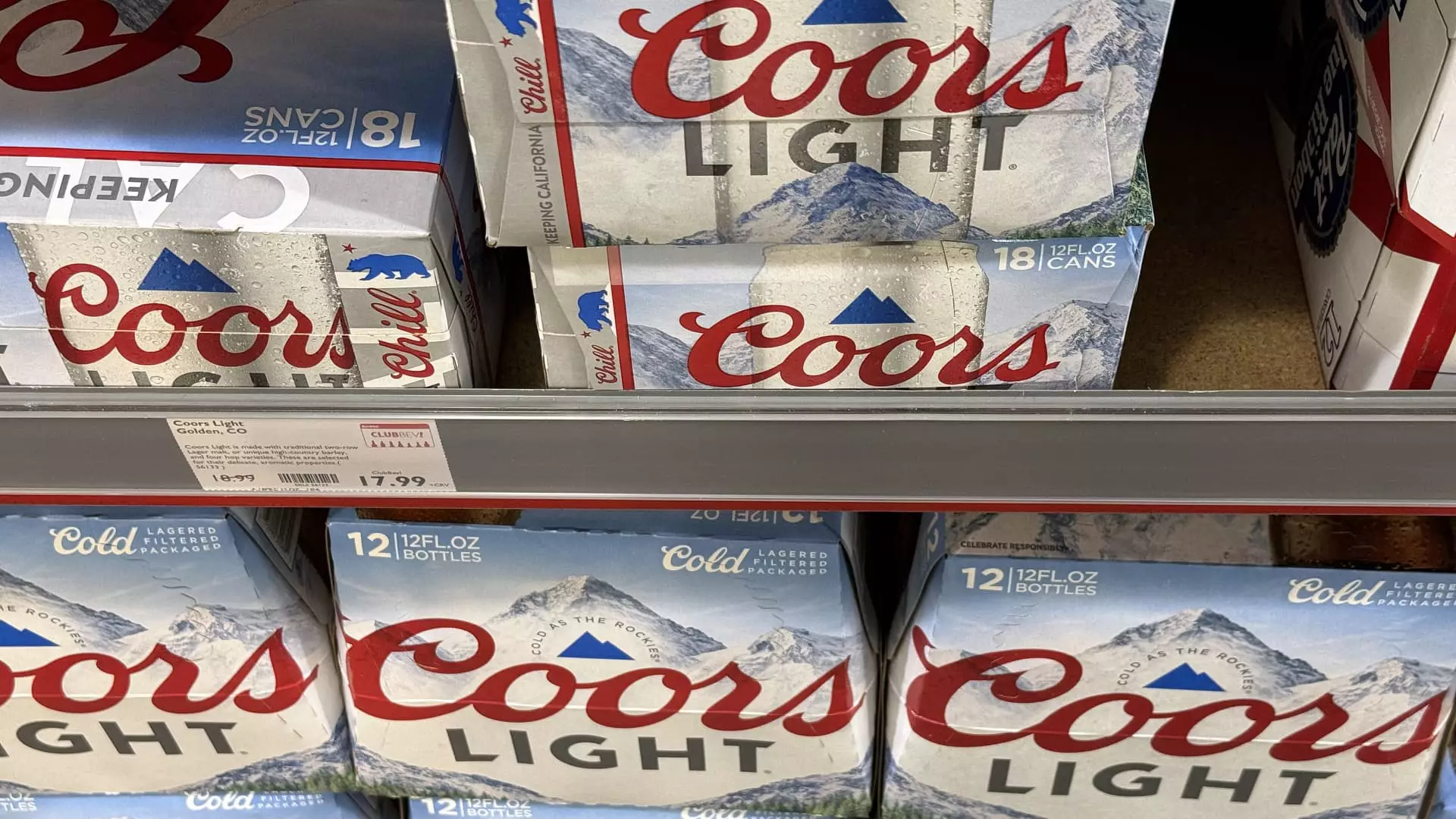Molson Coors, a well-known brewery, recently made headlines by announcing a significant shift in its approach to diversity, equity, and inclusion (DEI) policies. In an internal memo obtained by CNBC, company executives revealed that Molson Coors would no longer enforce supplier diversity quotas, citing external factors beyond their control as a primary reason for this decision. The move sparked debate and criticism from various stakeholders concerned about the implications of such a decision on the company’s workforce and broader community.
One of the key changes outlined in the memo was the restructuring of the company’s employee training programs. Molson Coors stated that it would transition from DEI-focused training to programs centered around key business objectives. Additionally, the company rebranded its Employee Resource Groups as Business Resource Groups while maintaining their core functions. These changes raised questions about the effectiveness of the new approach and its potential impact on promoting diversity and inclusion within the organization.
Molson Coors also announced that it would no longer participate in voluntary third-party company rankings, including the Human Rights Campaign’s Corporate Equality Index. This decision came as a surprise to many, especially considering the company’s previous perfect score on the index. Furthermore, the company revealed that its corporate charitable giving programs would now align more closely with core business goals, such as alcohol responsibility, disaster relief efforts, and promoting access to higher education. These shifts in priorities left some stakeholders questioning Molson Coors’ commitment to supporting marginalized communities and social causes.
Conservative activist Robby Starbuck’s recent probe into Molson Coors’ DEI practices added fuel to the fire, with some characterizing the policy changes as a preemptive response to his inquiry. However, the company clarified in its memo that the decision had been in the works since March, suggesting that external factors may have influenced the timing of the announcement. The brewing controversy surrounding Molson Coors’ policy reversal reflects broader trends seen in other companies, such as Tractor Supply, Harley-Davidson, and Lowe’s, which have also scaled back their DEI efforts in recent months.
The resurgence of interest in corporate DEI practices following the events of 2020, including the murder of George Floyd and the Black Lives Matter protests, has faced challenges in light of the Supreme Court’s decision to overturn affirmative action in colleges. While this ruling does not have a direct impact on corporate initiatives, companies are grappling with the growing anti-DEI sentiment that threatens to permeate corporate America. The evolving landscape of DEI in the corporate world underscores the complex interplay between social justice, business objectives, and external pressures.
Molson Coors’ decision to reverse its diversity, equity, and inclusion policies has sparked controversy and raised important questions about the company’s commitment to fostering a diverse and inclusive workplace. The implications of these changes extend beyond internal operations to the broader community, prompting a critical examination of the role of corporations in promoting social justice and equality. As the debate continues, it is crucial for stakeholders to engage in constructive dialogue and advocacy to ensure that companies uphold their responsibility to create a more equitable and inclusive society.


Leave a Reply